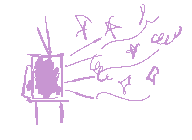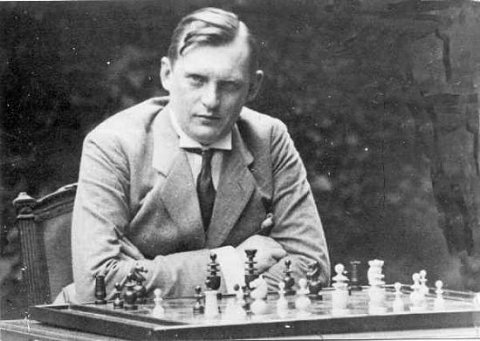recent activity
xenine voted INFJ for Stefan George.
xenine voted INTJ for Ernst Jünger.
xenine voted INFJ for Rudolf Steiner.
Bostonma voted 5w4 for thinks helping people is stupid and dumb.
Bostonma voted 1w9 for thinks helping people is stupid and dumb.
Bostonma voted ESFP for Cancer Cell.
Bostonma voted ISTJ for Thinks Justin Trudeau is French because he speaks French .
Nameless user voted ISTJ for Thinks Justin Trudeau is French because he speaks French .
xenine voted INTP for Friedrich Schelling.
xenine voted INTP for Stefan George.
xenine voted ENFJ for Joseph Haydn.
xenine voted xSFJ for Joseph Haydn.
xenine voted INFJ for Friedrich Nietzsche .
xenine voted ENFJ for Stefan George.
xenine voted xSTP for Miguel Serrano.
xenine voted xNTP for Miguel Serrano.
xenine voted ISTJ for 1w9 "The Sage".
xenine voted INTP for Max Stirner.
xenine voted INTP for Otto Weininger.
xenine voted ENTP for Richard Wagner.
xenine voted ENTx for Richard Wagner.
xenine voted ISTP for John Donne.
xenine voted INTJ for Mircea Eliade.
xenine voted INTJ for Self-Preservation 5.
xenine voted ENTJ for Raymond M. Smullyan.
xenine voted INTP for Skyrim.
xenine voted xNTx for Richard Wagner.
xenine voted INTP for Iannis Xenakis.
xenine voted ISTP for Frithjof Schuon.
xenine voted ISTP for Rudolf Steiner.
xenine voted INFJ for Johann Wolfgang von Goethe.
xenine voted INTJ for Julius Evola.
xenine voted sx/so for Novalis.
xenine voted sx/so for Novalis.
xenine voted sx/so for Novalis.
xenine voted INTP for Novalis.
gustyd voted INFJ for Ogino Chihiro / Sen.
gustyd voted LVEF for Jungian Ti type.
gustyd voted LII for Jungian Ti type.
gustyd voted sp/sx for Jungian Ti type.
gustyd voted INTP for Jungian Ti type.
gustyd voted 5w6 for Jungian Ti type.
gustyd voted INTJ for Jungian Ti type.
gustyd voted 4w3 for Sexual 4.
gustyd voted xNFP for Sexual 4.
gustyd voted 5w6 for Self-Preservation 5.
Rachel McAdams

Government, Politics, and Law

Business and Economy

Philanthropy and Humanism

Writing and Literature

Visual Arts and Fashion

Music and Performing Arts

Sports and Competitive Play

Television, Mass Media, and Society

General Artists

Science, Technology, and Engineering

Literature

Film and Television

Cartoon and Animation

Comics

Games

Miscellaneous and General

statistics
| all-time | |
| entries | 16154 |
| users | 1202 |
| comments | 7837 |
| mbti | 25998 |
| ennea | 21453 |
| variant | 13860 |
| tritype | 8710 |
| socio | 14232 |
| psyche | 3554 |
| hexaco | 197 |
| last 24 hours | |
| comments | 0 |
| mbti | 5 |
| ennea | 7 |
| variant | 0 |
| tritype | 4 |
| socio | 4 |
| psyche | 10 |
| hexaco | 0 |

















comments
Woll Smoth
Contrary to IDRlabs ESFP typing, there is actually a really strong argument that could be made for ENFP as Bill Cinton’s type. Before I get to the functions, I would like to counter some of their claims that they have made regarding Clinton.To start things off, they suggested that social psychologists are projecting their intellectual interest onto Clinton due to his high IQ, implying that Clinton himself lacks intellectual interests himself, saying "Social psychologists who work with the Big Five don’t always understand IQ as well as they should and equate it with intellectual interest, as, for example, some of Bill Clinton’s biographers have done. That’s likely because social psychologists are often high-O[peness] people themselves, so they read their own values into the analysis." I would disagree with that as there is evidence that Clinton did have an inclination towards intellectual interests (an intellectual engagement and curiosity that is separate from pure ability and intelligence):
Gabriel Garcia Marquez: "During his first campaign, Clinton had mentioned that his favorite book was 'One Hundred Years of Solitude.' ... I thought he had said it simply to pull in the Latin vote [but] after greeting me on Martha's Vineyard, he at once assured me that what he said had been quite sincere. ... When we asked him what he was reading, he ... mentioned a book on the economic wars of the future, author and title unknown to me. ... He asked us what our favorite books were. ... Clinton said [one of] his was the 'Meditations of Marcus Aurelius,' and Carlos Fuentes stuck loyally to 'Absalom, Absalom,' Faulkner's stellar novel. ... Clinton, in homage to Faulkner, got to his feet and, pacing around the table, recited from memory Benji's monologue ... from 'The Sound and the Fury.'"
Haynes Johnson: "Clinton likes to quote Machiavelli."
Clinton: "I like long books, raced through 'War and Peace' [by Tolstoy] at 22."
Clinton: "I feel like a character in a novel. I feel like somebody who is surrounded by an oppressive force that is creating a lie about me and I can't get the truth out. I feel like the character in the novel Darkness at Noon."
Harold Evans: "Clinton has had a problem finding space for his books in the White House. ... He is [a reading] omnivore."
Clinton: "[I would've liked to meet] Mark Twain. I would want to know what he believed and what was show."
So as shown, Clinton wasn't merely intelligent; he displayed genuine intellectual interest. He referenced and quoted complex literary works and the like. He was a voracious reader, drawn to lengthy and challenging material. All of which paints the picture of a person with a active intellectual life, not just someone with high cognitive ability. So based on that, we can say that the quotes I'm about to show below are not mere projections but observations/statements that do indeed hold actual weight:
Bob Woodward: "Clinton ... had an unusually broad national network of political, media, and academic friends, and displayed an obvious fascination with ideas."
Bob Woodward: "He was at home with ideas."
Rubenzer: "He liked pondering ideas and theories."
Rubenzer: "Clinton ... took much ... pleasure in solving brain-teasing puzzles. ... Clinton was [very] much ... prone to value open-mindedness."
Tom Rosenstiel: "He possesses ... a fierce thirst for knowledge and insight."
Secondly, IDRlabs has stated that "Clinton’s raw intelligence is legendary, but few people ever accused him of being prone to deep introspection." I would like to contend that there were indeed people who described Clinton as "introspective":
Haynes Johnson: "[Clinton] is a remarkably analytical, introspective person. To a degree that is quite stunning. ... Clinton ... was extremely, remarkably thoughtful and introspective."
Jerry Tarde: "[Thomas L.] Friedman had interviewed Clinton several times before at the White House ... he found the president most expansive and even introspective."
The Boston Globe: "The 42nd and 43rd presidents contrasted in many ways. ... Clinton was introspective and complex [while] Bush [was] breezy and unburdened by nuance."
Steven M. Gillon: "Clinton was introspective, full of doubt and uncertainty."
So as shown, there were indeed people who described Clinton as introspective so it's important to recognize that the idea of him "not exhibit[ing] a preference for introspection" is far from being something that is unanimously agreed upon. So while IDRlabs suggests that Clinton does not demonstrate a tendency toward introspection, numerous accounts have challenged this notion.
IDRlabs compares Clinton with Obama, saying "Barack Obama, by wide agreement, has a very high level of introspection, but has often been faulted for being indecisive and 'stuck in his own head' for this reason." It's interesting that they mention this comparison, considering Clinton has also faced criticism for similar things as stated here:
Bob Woodward: "Clinton would not fully commit to run. ... He set August as a personal deadline for a final decision, but the deadline slipped. Clinton had no campaign manager and not much organization. He appeared locked in a perpetual debate and argument with himself and with dozens of friends and advisers. His thinking never seemed to go in a straight line. He was unable to bring his deliberations to any resolution."
Los Angeles Times: "Clinton had written a speech and debated the pros and cons endlessly with anyone who had an opinion. But right up to the last moment, not even his closest aides knew which way he would go. ... Early in his career Clinton often appeared flatly indecisive."
New York Times: "In mainstream journalism, and even more so in popular entertainment, President Clinton is routinely depicted [as] a chronically indecisive man."
Why Ne over Se:
Now onto the actual functions themselves. It is my contention that his indecisiveness (at least in part) is rooted in his Ne. Don't worry, I won't bore you guys to death by bringing up the just previous mentioned quotes regarding his indecisiveness (those quotes were mostly counter arguments to challenge the idea that he was decisive if you get what I mean) because I have a quote that I think better directly illustrates his potential Ne:
Bob Woodard: "Clinton was even a step above Carter [in that] he could 'correlate' various ideas and issues. In many respects, Clinton was well suited to the presidency. He had a superior, inquisitive mind, especially when compared to Reagan, and was capable of genuine vision, especially when compared to Bush. But the very discord or range of opinion that Clinton craved in making his decisions often got him bogged down. Bentsen once described Clinton as the 'meetingest' fellow he’d ever seen. The very fact [is] that he wanted debate. ... The war for Clinton’s soul, that great struggle over which ideas and approach to use to guide the nation, continued unabated."
So as illustrated by Bob Woodward, Clinton, with his "inquisitive mind", was someone who "craved" (which is a important word here) a wide range of perspectives before making decisions to the point of getting "bogged down." As Mary Arrington has said in the article "ESFP vs. ENFP, Part 2", "Because of this focus on multiple possible perspectives on reality at the same time, ENPs are actually quite poor at dealing with situations where it is necessary to engage with factual reality as it is happening here and now." Se types can also be interested in other perspectives, yes, but they typically don't get "bogged down" by them. It is also reasonable to assume that his "struggle over which ideas and approach to use to guide the nation" comes from Ne's tendency to, as said by IDRlabs, "not subsume or reject the individual component that makes up the whole but aim to afford each its own place in the overall unity."
IDRlabs implies that Clinton lacked the transcendental aspects of Ne but I disagree with this. First lets see what IDRlabs meant by "transcendental" with regard to Ne: "Ne types may not even recognize that they have it in themselves. But it is nevertheless there and stems from the fact that Ne is bound to always be dissatisfied with the world in its current state. In the words of Isabel Myers, the Ne types 'regard the immediate situation as a prison from which escape is urgently necessary.' ... The escape from the status quo is worth more to the Ne type than the world as we know it." I think this very much applies to Clinton, he was not someone who was at home in his current context but sought to go beyond it:
Bob Woodward: "But Paster was, once again, amazed at Clinton’s willingness to allow these extended debates where they essentially talked to death the inevitable. Clinton was always trying to pick out a new course, move the debate or the policy slightly. The dynamic had a pattern. Clinton, unaccepting of the conventional wisdom, especially about Congress, would test the edges of what was possible, stretching the boundaries of the Washington and congressional playing field."
So as shown, Clinton "was always trying to pick out a new course" and "unaccepting of the conventional wisdom" and had a desire to "test the edges of what was possible", all of which paints the picture of someone with tendency to look beyond the immediate and explore novel solutions and approaches (the transcendental quality you guys talked about). The willingness to engage in "extended debates" can also be linked to Ne's comfort with exploring various theoretical angles, as well as van der Hoop's observation that Ne finds self-expression easy, which could manifest in prolonged discussions.
His divergence from the status quo got to a point where leaders around the world at the time called some of his initiatives "novel, bizarre and unprecedented" and "something like a UFO" as shown here:
The Washington Post: "French President Francois Mitterrand and German Chancellor Helmut Kohl were quoted by aides as saying they could not believe Clinton wanted to affix his name to [his initiative]. Calling the plan 'novel, bizarre and unprecedented,' spokesman Jean Musitelli said Mitterrand judged it to be 'something like a UFO.'"
Another way to differentiate Se and Ne (or S vs N in general) is that Se stays with the object while Ne bypasses the object. As said in the IDRlabs article "A Definition of Se and Si", "Intuition is not Sensation with an extra layer: Intuition oversteps the object, while Sensation remains with it." Clinton seemed to be more geared towards always moving beyond the initial data:
Bob Woodward: "Stephanopoulos was practically jumping out of his skin. He had seen Clinton act like this before; disliking, discarding, or wanting to change what he read. [Clinton's] initial reaction was always to ... force more discussion and debate."
("Always" being a key word here as it indicates that this was something habitual for Clinton as opposed to something that was just a one-off.)
Another point for Ne was his verbosity and long-windedness. Yes, I am aware that Se types can be talkative too but overall the tendency to be loquacious sounds more Ne than Se:
Rubenzer: "Clinton was very talkative, wordy, and verbose."
Time Magazine: "[He was] notoriously long winded."
Politico: "[He was] known for his long-winded and meandering speeches."
One could draw parallels with this and Fidel Castro and Muammar Gaddafi (both ENFPs), both of whom were also known for their long winded conversational style and speeches.
Final Note
Okay so this last part is going to be the weakest part of my argument but it's still something to consider. In the IDRlabs ENFP description it says, "The ENFP will naturally see things from the point of view of the outsiders and seek to champion their cause. ENFPs tend to be incredibly accepting of people, even accepting of those who may have drastically different stances on things than they do."
Steven M. Gillon: "He enjoyed talking to everyone, but had a special affinity for reaching out to people who were different, or somehow out of the mainstream."
nicotineseries
So, well now I wrote this text and in truth not only what I've been said this isn't based on the research or even I didn't have any data to prove with. In fact, you can search it by yourself if you want and there is now that technology is advanced and sophisticated, so go ahead and find the evidence yourself and share it here. Then I'll try to change my mind. Okay! Thank you.Woll Smoth
Introverted PerceptionWaltz: "I don’t like improvisation. I am not a writer and creating a script is a writer’s job. Mine is to interpret it. I wouldn’t like it if an author came up and told me how I should play a scene. That said, I think I also don’t like improvisation because I am not very good at it!"
Se/Ne prefer to "riff" on the external world in real time while Si/Ni prefers to take things down into a "internal laboratory" and work through it. All else being equal, the quote above suggests introverted perception (Si/Ni) over extroverted perception (Se/Ne).
Why Si over Ni
Per IDRlabs regarding the difference between Ni and Si, "the Ni type’s train of thought operates by unconscious amplification and association, not by ... elaborating on the meanings found in singular objects and instances (as with the S type). The factor of amplification by association is much more forceful in Ni types, whereas Si types prefer to stay with the one task at hand. As Jung also says, 'the Sensation type remains with things' (Tavistock Lecture I §33). This 'thing' may be big or small, abstract or concrete, long- or short-term, present- or future-oriented, but the common denominator is that the psyche of the Si type stays in harness throughout the task set before it, whereas the Ni type leaps between objects and tasks by way of association and amplification of the individual objects to fit an overall process of association, rather than staying with the individual object in itself. The Si type may also operate by amplification, but it is usually by way of the concentration and patient focus on the amplification of one object that the Si type reveals himself."
To my mind, Christoph Waltz does not align with the Ni type's tendency to leap "between objects ... by way of association and amplification of the individual objects to fit an overall process of association" but rather stays with the specific task at hand:
Waltz: "I try to follow the lead of the writer, and the script ... and find what's in the case at hand and not so much in the generalization of, for example, the genre or the actor's persona. I really make an effort to stick to the individual character because it serves a very specific purpose. And without the specificity you have more or less nothing."
Another quote where I find his Si quite prevalent:
Waltz: "When Jochen Rindt was racing ... I remember everything about his crash; I remember exactly where I was, all the details. I’m not particularly into motor racing, but I am into the tyre changes, the pit stops. It is the most incredible thing to watch. That’s perfect co-ordination between people and all their motor senses, every movement perfectly rehearsed. Each person is 100 per cent perfect and then it’s ten people together! The efficiency is breathtaking. The cars are machines, and that’s interesting too, of course. But this is ten people doing something which takes effort, concentration, knowledge and practice. It’s like playing a musical instrument."
(Furthermore, we could also argue for Te in that quote, focusing on and admiring the external mechanics like the efficiency of the tire changes.)
Ni types utilize their Te/Fe to arrange things to align with their Ni visions, which are holisitc, radical, removed from daily life, and are accompanied by an unwavering conviction that tends to hinder collaboration or compromise when implementing them. On the other hand, Si types approach decision-making and organization more meticulously. Their Te/Fe serves to make decisions in accordance with their Si observations, which are detailed, practical, and grounded in everyday realities (even if it's with a personal angle). Waltz fits the latter moreso than the former:
Waltz: "I have a less romantic and idealistic approach to acting. Over there [Germany], the business is based on mediocrity. On a high level, admittedly, but mediocrity. You reach a certain level, beyond which you will not go. Not just in career but in challenges and opportunity. It's interesting for the specific issue of how to cope with an actor's life. To lead an actor's life. What do you do if you have a stretch of five years where you only get mediocre offers and nothing to sink your teeth into? That's where it is difficult. Becoming an actor is one thing. Being an actor is entirely different."
Waltz: "[I do acting because] it's my profession, no different than it is for any other profession. In medicine, the best caregivers are those without passion. The doctors that are too passionate are very often the ones who make serious mistakes."
Lastly, one may even argue that his frustration of the lack of the thoroughness of others with regard to film may be indicative of Si:
Waltz: "[Dialogue in film] should be dealt with equal attention and diligence [as the visuals], but sadly it isn’t. You only have to listen to people talk on the street, unless they’re talking this gibberish that seems to be the main mode of communication now."
Inferior Ne:
ISTJs repress Ne, which is the function that is correlated with easily expressing oneself verbally. They, similar to ISPs, can dislike prosing their work:
Waltz: "I think it is absolutely ridiculous that actors go on their bonus DVD interviews and explain what they were doing. That’s not what an actor does. ... It’s completely counterproductive for an actor to talk about his part."
Waltz: "I don’t like talking about [my roles]. If you go into a restaurant and you have been served an exquisite meal, you don’t need to know how the chef felt, or when he chose the vegetables on the market. I always feel a little like I would pull the rug out from under myself if I were to I speak about the background of my work."
Another aspect of repressing Ne in Si dominant types is that this could lead them to seek to stay true to a select few ideas over diverting to a multitude of ideas, as is the case with Waltz:
Waltz: "Whether it’s a job, a relationship, even a hobby that you follow for your own amusement: eventually, you get to the point where perseverance is what’s needed."
Waltz: "What keeps you going is stubbornness, economic necessity, or simply endurance. ... You need persistence."
[When asked about equestrian]
Waltz: "Riding is like singing, you need to do it on a regular basis to do it elegantly and so it is at least sufferable for the other creatures involved, be it your family at home in terms of singing or the poor horse in terms of riding."
Additional Notes:
Regarding Te, some of Te can be seen in the "Jochen Rindt" from the quote before but here's another that I think could be indicative of Te:
Waltz: "It's the result that makes the art, not necessarily the process that leads to it."
nicotineseries
I keep seeing that people would confuse this person with XNTP types when I saw on the MBTI community especially on the Personality Database or whatever a website could easily took someting until misunderstood it. I think of those voters or even according to any systems like IDRlabs cannot take thing seriously or at least until people would search this person (Lewis Carroll) it's deeper of an iceberg, like you got to dig diver it until your understand it. I agree or understand with what user Woll Smoth vote about Princess Ariel as an Se users and I compare that with this person (Lewis Carroll) and yeah and I know can imagine that too. If you want me to elaborate all of my research and reasons, I said I mean with this according to many website and biography videos I think people would judge it with Introversion and some people would arguing "yeah he is sound kind a high Ne users" and etc etc, but isn't. I really dig diver some new information about this probably 1 years ago and I've summarized it as best I can for evidence, but some of it may be missing or lacking because I'm too lazy to write it here. So, in short, this person is incline to hereticism and spiritualism and as users Woll Smoth said about ENFJs “the ENFJ tends to have an intellectual, even scholarly, side which they use to delve into abstract problems concerning the whole of society, if not the world. In truth, most ENFJs are quite comfortable juggling complex facts and challenging situations that require a firm grasp of the theory involved.” And I think again some people maybe said that "oh, it is because he is conservative anglican pious christian and pervert? Or even bad, he is a bad person 'cus pedophilia bla bla bla..." no it is not the main REASONS and I want to tell the truth, mostly because I hardly quoted none quotes on here because he is too private as a person and only be recorded at his letters or he's acquitances and I pleased to someone don't be too quick swiftly judging any others MBTI as a bad and unappropiated because one of the cognitive functions is different which makes you differentiate between other types. Okay so next by the way I'll shorten this I now compare it with any other famous person in IDRlabs one of them is with the INTJ personality, as I get the similarity with it is Isaac Newton and I yeah I get that the analogies between their behavior, thinking and yeah probably they're had an in commonly same and insanely it is so perfect that there is no difference at all! If so, you can check the truth of what I said earlier by reading his biography, autobiography, an interview with original sources such as his relatives, siblings, etc. Until you want the most extreme level, you can search and ask in the community and try to criticize which mistakes you want to state then tell me then I will change my way of thinking and my voters and give me questions (anything) up to you so I can state which errors and where my mistakes lie. Also one of his illustrator, Sir John Tenniel said that someone who a fussy and authoritarian behavior that demands everything to be perfect until the book is published. Well, maybe at this point there will be someone who will point to evidence in the form of a biographical film, right? It's fitting that I see the community criticizing some of the inconsistencies in the behavior in the film and the personality of the person behind his work. Actually, this Mr. Charles Lutwidge Dodgson or his anonymous name known as "Lewis Carroll" is indeed very difficult for us to understand for those who are unfamiliar and don't understand how this person's way of thinking. Indeed, when I read one of his biographies, it was quite surprising and confusing why this person was one of the people I analyzed who was the most different. And yes, I began to realize that he was actually a dominant intuitive and I think he did have an abstraction in creating a work that was very irrational and dependent on someone's imagination which made me definitely put him in the dominant intuitive category (and one of his friends, a member of the Rossetti family, said so). But I thought again, Why isn't Ne dominant, ENTP maybe because he is a thinker?, so what I just said is that this person is basically very abstract and has a few percent for him to be a Sensor because he can also master the intellectual field and academic conversations or something related to that. So I sorted him back to another possibility, namely Ni is dominant in his cognitive function. But there are also people who say that he is S, including IXTJ or something like that. "Oh, why not other introverts like IXXP or IXXJ, why do you say he is in the IXTJ category, IXTX is a heartless thinker or something..." Well, that's my opinion, yes, he might use Te because he is structured in other words regarding goals and targets. As the quote from user PDB (Personalty Database) said about the Tekken 8 character Jin Kazama "I agree that Jin is Ni dom but he seems more Te-Fi>Fe-Ti. In the Tekken 6 storyline (which is controversial but it's canon regardless of what people think) he seems so contingent to marshal facts for the sake of actualizing a personal goal." or "Jin's judgment seems tailored towards measurable solutions that are tailored towards a particular end, All else being equal, when criticizing something, an INTJ is more likely to put emphasis on the practicality of the idea than an INFJ, hence why he says "Does it really make a difference?" Another thing to consider is that, as IDRlabs puts it, "INTJs have auxiliary extroverted thinking. Since their thinking is directed outwards, they prefer for their judgments and plans to be oriented towards the actionable. While their ruminations and visions might be just as lofty as those of the INFJ, the concrete takeaways from their thoughts tend to be much easier to translate into practical reality. They want to construct a clear path from abstract vision to concrete reality; to shake the world with their thoughts in a way that makes the 'impossible' possible. This fits Jin well." And well, this is the conclusion, and if time permits, I will look for some quotes or more or less examples in his other autobiographical books.nicotineseries
In regards to the evidence of my Lewis Carroll votersSo, now I keep seeing that people would confuse this person with XNTP types when I saw on the MBTI community especially on the Personality Database or whatever a website could easily took someting until misunderstood it. I think of those voters or even according to any systems like IDRlabs cannot take thing seriously or at least until people would search this person (Lewis Carroll) it's deeper of an iceberg, like you got to dig diver it until your understand it. I agree or understand with what user Woll Smoth vote about Princess Ariel as an Se users and I compare that with this person (Lewis Carroll) and yeah and I know can imagine that too. If you want me to elaborate all of my research and reasons, I said I mean with this according to many website and biography videos I think people would judge it with Introversion and some people would arguing "yeah he is sound kind a high Ne users" and etc etc, but isn't. I really dig diver some new information about this probably 1 years ago and I've summarized it as best I can for evidence, but some of it may be missing or lacking because I'm too lazy to write it here. So, in short, this person is incline to hereticism and spiritualism and as users Woll Smoth said about ENFJs “the ENFJ tends to have an intellectual, even scholarly, side which they use to delve into abstract problems concerning the whole of society, if not the world. In truth, most ENFJs are quite comfortable juggling complex facts and challenging situations that require a firm grasp of the theory involved.” And I think again some people maybe said that "oh, it is because he is conservative anglican pious christian and pervert? Or even bad, he is a bad person 'cus pedophilia bla bla bla..." no it is not the main REASONS and I want to tell the truth, mostly because I hardly quoted none quotes on here because he is too private as a person and only be recorded at his letters or he's acquitances and I pleased to someone don't be too quick swiftly judging any others MBTI as a bad and unappropiated because one of the cognitive functions is different which makes you differentiate between other types. Okay so next by the way I'll shorten this I now compare it with any other famous person in IDRlabs one of them is with the INTJ personality, as I get the similarity with it is Isaac Newton and I yeah I get that the analogies between their behavior, thinking and yeah probably they're had an in commonly same and insanely it is so perfect that there is no difference at all! If so, you can check the truth of what I said earlier by reading his biography, autobiography, an interview with original sources such as his relatives, siblings, etc. Until you want the most extreme level, you can search and ask in the community and try to criticize which mistakes you want to state then tell me then I will change my way of thinking and my voters and give me questions (anything) up to you so I can state which errors and where my mistakes lie. Also one of his illustrator, Sir John Tenniel said that someone who a fussy and authoritarian behavior that demands everything to be perfect until the book is published. Well, maybe at this point there will be someone who will point to evidence in the form of a biographical film, right? It's fitting that I see the community criticizing some of the inconsistencies in the behavior in the film and the personality of the person behind his work. Actually, this Mr. Charles Lutwidge Dodgson or his anonymous name known as "Lewis Carroll" is indeed very difficult for us to understand for those who are unfamiliar and don't understand how this person's way of thinking. Indeed, when I read one of his biographies, it was quite surprising and confusing why this person was one of the people I analyzed who was the most different. And yes, I began to realize that he was actually a dominant intuitive and I think he did have an abstraction in creating a work that was very irrational and dependent on someone's imagination which made me definitely put him in the dominant intuitive category (and one of his friends, a member of the Rossetti family, said so). But I thought again, Why isn't Ne dominant, ENTP maybe because he is a thinker?, so what I just said is that this person is basically very abstract and has a few percent for him to be a Sensor because he can also master the intellectual field and academic conversations or something related to that. So I sorted him back to another possibility, namely Ni is dominant in his cognitive function. But there are also people who say that he is S, including IXTJ or something like that. "Oh, why not other introverts like IXXP or IXXJ, why do you say he is in the IXTJ category, IXTX is a heartless thinker or something..." Well, that's my opinion, yes, he might use Te because he is structured in other words regarding goals and targets. As the quote from user PDB (Personalty Database) said about the Tekken 8 character Jin Kazama "I agree that Jin is Ni dom but he seems more Te-Fi>Fe-Ti. In the Tekken 6 storyline (which is controversial but it's canon regardless of what people think) he seems so contingent to marshal facts for the sake of actualizing a personal goal." or "Jin's judgment seems tailored towards measurable solutions that are tailored towards a particular end, All else being equal, when criticizing something, an INTJ is more likely to put emphasis on the practicality of the idea than an INFJ, hence why he says "Does it really make a difference?" Another thing to consider is that, as IDRlabs puts it, "INTJs have auxiliary extroverted thinking. Since their thinking is directed outwards, they prefer for their judgments and plans to be oriented towards the actionable. While their ruminations and visions might be just as lofty as those of the INFJ, the concrete takeaways from their thoughts tend to be much easier to translate into practical reality. They want to construct a clear path from abstract vision to concrete reality; to shake the world with their thoughts in a way that makes the 'impossible' possible. This fits Jin well." And well, this is the conclusion yeah that it is, and if time permits, I will look for some quotes or more or less examples in his other autobiographical books.
Woll Smoth
I understand the INFP argument, believe me, I do, and I also am not against the idea of Bjork being INFP as there can certainly be decent case made for it. However, I also think ISFP is also very possible. Just to play devil's advocate for a moment, here is a potential ISFP argument.With regards to self-expression, IDRlabs have said the following, "as we know from Myers, Jung and van der Hoop, types who have Ne as one of their two top functions (such as INFPs) tend to find self-expression easy. ... By contrast, we know from the same authors that the concepts distilled by Ni tend to have a hard time finding an outwards expression that adequately conveys what is going on inside. ... Of all the 16 types, the ISFP is perhaps the type that is the most at odds with expressing themselves adequately, because of their Fi-Ni axis. But their difficulty with traditional modes of self-expression will frequently be made up for by ingenious modes of alternative self-expression. (Through music, art, design, etc.)"
While both Fi-dominant types may often feel that they struggle to do their Fi inner experience justice with regards to self-expression, all else being equal, an ISFP is going to feel that they have a much harder time expressing themselves verbally than an INFP and will see words as inadequate when trying to convey the inner values that they hold inside. That is to say, compared to the INFP, the ISFP (because of the general effect of the combination of Fi-Se-Ni) typically doesn't like talking about their art/actions, as to them the experience/thing/action speaks for itself. For examples of IDR ISFPs:
David Bowie: “I had to resign myself, many years ago, that I’m not too articulate when it comes to explaining how I feel about things. But my music does it for me, it really does. There, in the chords and melodies, is everything I want to say. The words just jolly it along. It’s always been my way of expressing what for me is inexpressible by any other means.”
Kate Bush: "I really like the idea of my work speaking for me, not me speaking for me. I think my works says a lot more interesting stuff than I ever could and it’s more eloquent, and that is what I feel I have to offer the world. I don’t feel that what I have to say personally is that interesting and it’s not something that I have enthusiasm about, it’s not fun for me – I don’t really enjoy it."
Paul McCartney: "I don't like people explaining albums. The only way you can explain it is to hear it. You can't really use words about music, otherwise we'd do a talking album. The album is the explanation, and it's up to you to make sure what you want of it."
In this regard Bjork seems more Se-Ni than Ne-Si:
Björk: "[On tour I] do them interviews and try to explain something which is actually quite unexplainable, really. You know, I was asked earlier today to name 3 of my favorite albums at the moment and why, and it's just impossible, you know? And music should be that way, you know? It's unexplainable. It's one of the few things we got left in our culture which is not explainable."
Björk: "I find it more important to make music than to talk about it."
Rose: "My sense about you, in reading and knowing a little about your music, is that you have always been in love with sound - all kinds of sound."
Björk: "Yeah."
Rose: "Not lyrics, sound?"
Björk: "Yeah."
Rose: "Right? Tell me about that - all kinds of sounds."
Björk: "Yeah, it's just the one most all-embracing, forgiving, understanding thing there is. Just in the full abstraction of it, it doesn't ask any questions, and you don't have to explain yourself. And it's the one world where that can cover all of the emotional levels of you. I'm the sort of person, when it comes to say something like language or just communicating on a daily basis, I feel like I'm trying to put an ocean through a straw. And with music..."
Rose: "Because you feel so much, hear so much?"
Björk: "Maybe just because I'm not very good at it, you know, but with music, it doesn't feel like that. And it's not only me making music, it's also listening to other people's music that it's just like a warm embrace, you know?"
[Interviewer: "Obviously, we all think of you as a musician. So, what do you think of the acting business?"]
Björk: "I guess I'm not really impressed, really."
[Interviewer: "No?"]
Björk: "No."
[Interviewer: "You only had one go; it might get better. What didn't you like?"]
Björk: "There's too much talking. ... I'm more into singing."
One might point out examples of INFPs not liking to elaborately explain their work (like David Lynch) but even in that case one can see David Lynch is much more Si than Se in that his relationship to the empirical world is more refined/personalized/routinized:
Rose: "So what do you eating at first, tell me what you're eating?"
Lynch: "I'm eating, for lunch, tomatoes, tuna fish, feta cheese, and olive oil."
Rose: "Now, here's what's interesting about you, you eat that every day."
Lynch: "Every day."
Rose: "You eat the same thing?"
Lynch: "Yeah, it's very good."
Rose: "[laughs] Well I'm sure it is, otherwise we wouldn't eat it every day."
Lynch: "Right, exactly."
Rose: "What do you eat for dinner?"
Lynch: "Chicken... little pieces of chicken and broccoli and a little soy sauce."
Rose: "Every day?"
Lynch: "Yeah, everyday except when I travel, then I go off that."
Rose: "Can we say you're a creature of habit?
Lynch: "Yes, habit in the daily routine ... when there's some sort of order there then you're free to mentally go [to] any place, you've got a safe sort of foundation and a place to spring off. ... The purer the environment, the more fantastic the interior world can be, it seems to me."
By contrast Bjork's relation to the empirical world is much more visceral/direct/dynamic:
Björk: "What's kind of always truly been ... where my heart is, is making music and ... sounds, noises, and surroundings that I find exciting and interest me. While being a singer is mostly like a bit of a tool to be able to do that."
Björk: "All these people who say cars are so ugly, pollution’s so terrible—it’s true, but if you don’t want to live here then move into the forest. And if you are gonna live here, you might as well accept it and make the most out of it.”
I'll admit, if Björk is an ISFP type then she is a really weird S type (and by "weird" I don't mean eccentric behavior as that's a terrible way to distinguish S vs N, but rather Björk has a lot of traits that one wouldn't expect from an S type). Not an expert in the Big 5 by any means but I'd wager she's probably higher in openness to experience than the average ISFP, similar to Bowie and Enya.
Woll Smoth
I understand the INFP argument, believe me, I do, and I also am not against the idea of Bjork being INFP as there can certainly be decent case made for it (hence why I didn't vote for Bjork in IDR). However, I also think ISFP is also very possible. Just to play devil's advocate for a moment, here is a potential ISFP argument.With regards to self-expression, IDRlabs have said the following, "as we know from Myers, Jung and van der Hoop, types who have Ne as one of their two top functions (such as INFPs) tend to find self-expression easy. ... By contrast, we know from the same authors that the concepts distilled by Ni tend to have a hard time finding an outwards expression that adequately conveys what is going on inside. ... Of all the 16 types, the ISFP is perhaps the type that is the most at odds with expressing themselves adequately, because of their Fi-Ni axis. But their difficulty with traditional modes of self-expression will frequently be made up for by ingenious modes of alternative self-expression. (Through music, art, design, etc.)"
While both Fi-dominant types may often feel that they struggle to do their Fi inner experience justice with regards to self-expression, all else being equal, an ISFP is going to feel that they have a much harder time expressing themselves verbally than an INFP and will see words as inadequate when trying to convey the inner values that they hold inside. That is to say, compared to the INFP, the ISFP (because of the general effect of the combination of Fi-Se-Ni) typically doesn't like talking about their art/actions, as to them the experience/thing/action speaks for itself. For examples of IDR ISFPs:
David Bowie: “I had to resign myself, many years ago, that I’m not too articulate when it comes to explaining how I feel about things. But my music does it for me, it really does. There, in the chords and melodies, is everything I want to say. The words just jolly it along. It’s always been my way of expressing what for me is inexpressible by any other means.”
Kate Bush: "I really like the idea of my work speaking for me, not me speaking for me. I think my works says a lot more interesting stuff than I ever could and it’s more eloquent, and that is what I feel I have to offer the world. I don’t feel that what I have to say personally is that interesting and it’s not something that I have enthusiasm about, it’s not fun for me – I don’t really enjoy it."
Paul McCartney: "I don't like people explaining albums. The only way you can explain it is to hear it. You can't really use words about music, otherwise we'd do a talking album. The album is the explanation, and it's up to you to make sure what you want of it."
In this regard Bjork seems more Se-Ni than Ne-Si:
Björk: "[On tour I] do them interviews and try to explain something which is actually quite unexplainable, really. You know, I was asked earlier today to name 3 of my favorite albums at the moment and why, and it's just impossible, you know? And music should be that way, you know? It's unexplainable. It's one of the few things we got left in our culture which is not explainable."
Björk: "I find it more important to make music than to talk about it."
Rose: "My sense about you, in reading and knowing a little about your music, is that you have always been in love with sound - all kinds of sound."
Björk: "Yeah."
Rose: "Not lyrics, sound?"
Björk: "Yeah."
Rose: "Right? Tell me about that - all kinds of sounds."
Björk: "Yeah, it's just the one most all-embracing, forgiving, understanding thing there is. Just in the full abstraction of it, it doesn't ask any questions, and you don't have to explain yourself. And it's the one world where that can cover all of the emotional levels of you. I'm the sort of person, when it comes to say something like language or just communicating on a daily basis, I feel like I'm trying to put an ocean through a straw. And with music..."
Rose: "Because you feel so much, hear so much?"
Björk: "Maybe just because I'm not very good at it, you know, but with music, it doesn't feel like that. And it's not only me making music, it's also listening to other people's music that it's just like a warm embrace, you know?"
[Interviewer: "Obviously, we all think of you as a musician. So, what do you think of the acting business?"]
Björk: "I guess I'm not really impressed, really."
[Interviewer: "No?"]
Björk: "No."
[Interviewer: "You only had one go; it might get better. What didn't you like?"]
Björk: "There's too much talking. ... I'm more into singing."
One might point out examples of INFPs not liking to elaborately explain their work (like David Lynch) but even in that case one can see David Lynch is much more Si than Se in that his relationship to the empirical world is more refined/personalized/routinized:
Rose: "So what do you eating at first, tell me what you're eating?"
Lynch: "I'm eating, for lunch, tomatoes, tuna fish, feta cheese, and olive oil."
Rose: "Now, here's what's interesting about you, you eat that every day."
Lynch: "Every day."
Rose: "You eat the same thing?"
Lynch: "Yeah, it's very good."
Rose: "[laughs] Well I'm sure it is, otherwise we wouldn't eat it every day."
Lynch: "Right, exactly."
Rose: "What do you eat for dinner?"
Lynch: "Chicken... little pieces of chicken and broccoli and a little soy sauce."
Rose: "Every day?"
Lynch: "Yeah, everyday except when I travel, then I go off that."
Rose: "Can we say you're a creature of habit?
Lynch: "Yes, habit in the daily routine ... when there's some sort of order there then you're free to mentally go [to] any place, you've got a safe sort of foundation and a place to spring off. ... The purer the environment, the more fantastic the interior world can be, it seems to me."
By contrast Bjork's relation to the empirical world is much more visceral/direct/dynamic:
Björk: "What's kind of always truly been ... where my heart is, is making music and ... sounds, noises, and surroundings that I find exciting and interest me. While being a singer is mostly like a bit of a tool to be able to do that."
Björk: "All these people who say cars are so ugly, pollution’s so terrible—it’s true, but if you don’t want to live here then move into the forest. And if you are gonna live here, you might as well accept it and make the most out of it.”
I'll admit, if Björk is an ISFP type then she is a really weird S type (and by "weird" I don't mean eccentric behavior as that's a terrible way to distinguish S vs N, but rather Björk has a lot of traits that one wouldn't expect from an S type). Not an expert in the Big 5 by any means but I'd wager she's probably higher in openness to experience than the average ISFP, similar to Bowie and Enya.
nicotineseries
Woll Smoth
I suggest IDRlabs move Joe Biden from ENFJ to ESFJ:I agree that Joe Biden is Fe dominant, but I won't go too deep into that territory and will mostly focus on the S and N distinction (as well as Si and Ni). For starters, I think his N is too low to be one of his uppermost functions, semi-conscious N makes a lot more sense. As IDRlabs has said in their basic general portrait of ENFJs, “the ENFJ tends to have an intellectual, even scholarly, side which they use to delve into abstract problems concerning the whole of society, if not the world. In truth, most ENFJs are quite comfortable juggling complex facts and challenging situations that require a firm grasp of the theory involved.” This "intellectual" and "abstract" side of the ENFJ is in no small part due to their auxiliary Ni, which is arguably the most abstract function imo. Anyway back to Joe Biden, there seems to be much more evidence of him not being oriented towards the abstract:
The Atlantic: “Though plenty smart, Biden is not an intellectual. He makes few references to books and learned influences in his speeches and autobiography, and he displays little interest in theory. An indifferent student at the University of Delaware and Syracuse University College of Law—he describes the latter as 'boring'—Biden got by with prodigious cramming sessions. Today, by contrast, he is described by Tony Blinken, Biden’s national-security adviser, as a compulsive studier who likes to be overbriefed."
Howard Fineman: “Biden is not an academic, he's not a theoretical thinker, he's a great street pol."
Regarding Si specifically, some quotes about Biden where I find that Fe supported by Si (meticulous, practical) makes more sense than Fe supported by Ni (ideational, holistic):
The Atlantic: “The guideposts in Biden’s political landscape are often not ideas, but people. Many of the world leaders with whom the United States has business are men and women he has known for years, even decades. In fall 2009, for example, after Obama had decided to abandon plans to build land-based missile defenses in eastern Europe—a move interpreted as a concession to Moscow—the White House sent Biden on a three-day swing through Poland, Romania, and the Czech Republic to reassure the leaders of those countries that their security would not be compromised. Biden had mastered the details of the issue—the virtues of sea-based anti-missile technology versus land-based, and so on—but his most important asset was that he knew many of the leaders personally.”
This last point isn't going to be my strongest point but it is something to consider. IDRlabs defines Si as "a way of perceiving psychic material by way of past impressions that have been subjectively associated with the outer occurrence at hand, causing the subject to experience deep and ineffable qualities in even ordinary sensations." Here is another quote from Mark Bowden from The Atlantic about Joe Biden that seems to suggest that Joe Biden could have a preference for Si:
The Atlantic: “In his personal life, Biden could hardly be more traditional. In the scruffy ’60s, when so many young men of his generation went unkempt as a social and political statement, Biden dressed up for class in college, sometimes wearing a tie. He says his first wife, Neilia, described him as ‘the most socially conservative man she had ever known.’”
One might interpret Joe Biden being "traditional" and "socially conservative" is a result of the subjective significance in the routines he has become accustomed to.
Woll Smoth
The way Briggs Myers describes Te is more similar to LSI than SLE, no?Briggs Myers on Te:
“They are in their element whenever the outer situation needs to be organized, criticized, or regulated. Ordinarily they enjoy deciding what ought to be done and giving the appropriate orders to ensure that it will be done. … Often they are crisp disciplinarians, who know how to be tough when the situation calls for toughness. … Much of the extraverted thinkers’ effectiveness stems from their willingness to issue as strict orders to themselves as to anyone else. They stake out their objectives well in advance and put a lot of systematic effort into reaching them on schedule. At their best, they turn an unsparing eye upon their own conduct and revise whatever does not come up to standard . Extraverted thinkers construct a code of rules embodying their basic judgments about the world. They aim to live by those rules, and consider that others should as well. Any change in their ways requires a conscious change in the rules. If their perception is not good enough to show them, from time to time, how their rules should be broadened, the code will be so narrow and rigid that it becomes a tyranny not only to the thinkers but also to those around them, especially their families. Everything that conforms to the rules will be right; everything that violates them will be wrong; and everything not covered by them will be unimportant. They will become, as Jung puts it, ‘a world-law whose realization must be achieved at all times and seasons.... [Anyone] who refuses to obey is wrong—he is resisting the world-law, and is, therefore, unreasonable, immoral and without a conscience’”
So as shown, MBTI Te use of principles (socionics Ti) isn’t just a situational thing, it typically needs everyone to adhere to them 24/7. The use of force (Socionics Se) is only in the context of said principles.
nicotineseries
Hey! Everyone this is my new page. Forget to my past entry that I had been made before, thank you.Feel free to ask me of course if I had time.
nicotineseries
Hey! Everyone this is my new page. Forget to my past entry that I had been made before, thank you.Feel free to ask me of course, also forget with that photo instead too.
nicotineseries
Well somehow there is someone who put these thing on here, thank you!!Bostonma
For intp 5w4, perhaps not "people"gvDIgrDT
555gvDIgrDT
555gvDIgrDT
555gvDIgrDT
555gvDIgrDT
555gvDIgrDT
555